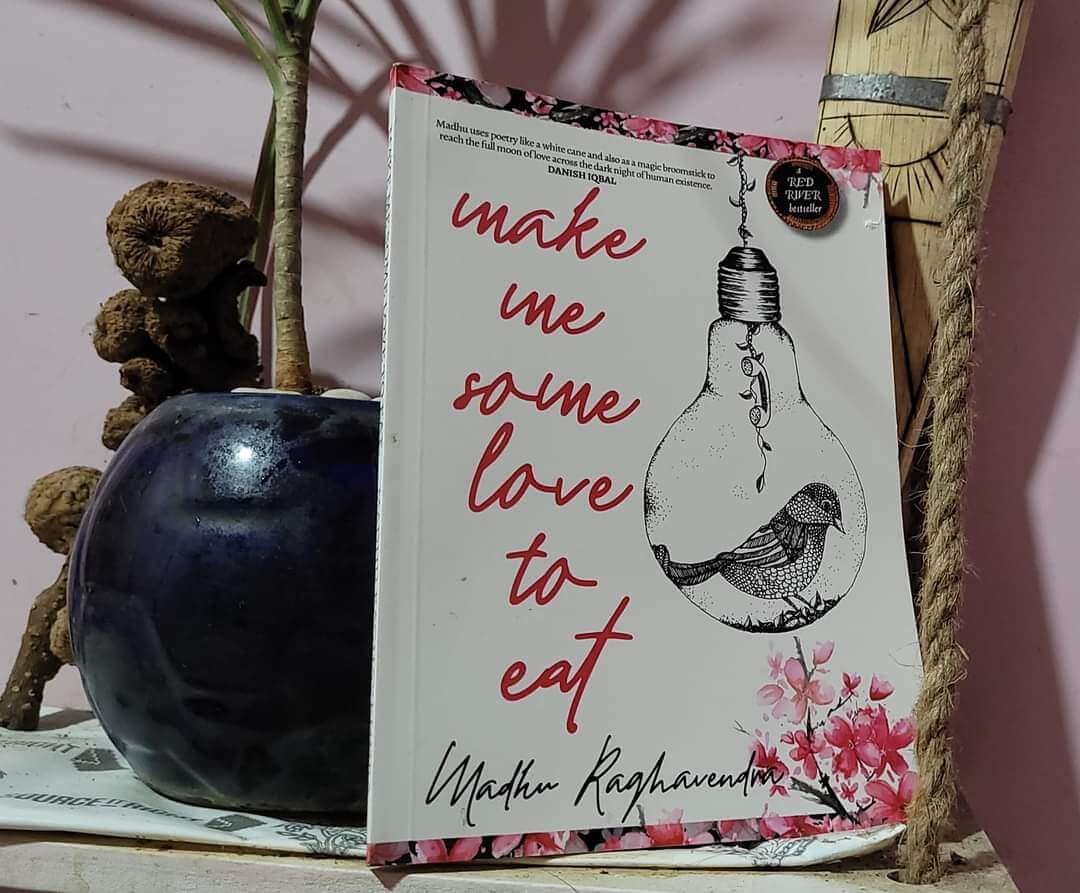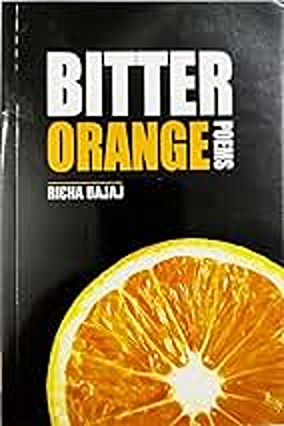Sonali reviews Madhu Raghavendra’s book of poems, Make me Some Love to Eat, exclusively for Different Truths.

When I finished Neruda’s “Love poems”, I couldn’t get into the most profound kernel of his emotions, the mighty old monk taste of the book, honestly.
I was restricted from reading Neruda again and again, being a student of the ninth standard, I still remember.
During my twelfth standard, I started reading Neruda meticulously, only to taste the delicate intoxicating flavour of his masterclass poems.
Few poets, like Neruda, were able to dig our hearts, plant the sapling of love … exhibit the delicacy of true love with sheer brilliance.
Very few poets, like Neruda, were able to dig our hearts, plant the sapling of love (divinity and aesthetic both), exhibit the very delicacy of true love with sheer brilliance and masterclass emotions, diving deep into the reader’s very intricate yet tender feelings for love- that can’t be expressed.
Poets like Robert Burns, Elizabeth Browning, Cummings (one of my favourites), Yeats and even Christina Rossetti, Rilke’s poems attracted me to read several times during my grad and postgrad times.
Unknowingly or knowingly, I started to compare the fine delicacy of their poems, reaching one with another (a part of our syllabus, too) and climbing the ladder. The graph started to rise upwards, and I went on reading, illustrating each one’s memorable poems, trying to delve deep!
Meanwhile, Neruda planted a green sapling of love. Apart from all, I was getting closer to his lyrics- a state of intoxication, and I’d like to admit honestly.
While reading Madhu Raghavendra’s phenomenal collection of poems, published by Red River, I returned to my postgrad days, even though I don’t think I have been pretty reading/writing for a long time.
I broke the restrictions the doctors prescribed and went on reading one after the other poems, only to connect myself to feel the mystical journey of love.
I broke the restrictions the doctors prescribed and went on reading one after the other poems, only to connect myself to feel the mystical journey of love.
Make me Some Love to Eat is such a collection of poems; it made me think, rethink, and sometimes bound to read some poems twice or thrice, how delicately yet they hammered my thoughts.
Raghavendra divided the whole collection into three specific parts: the first one is “Order”. In this part, I found a bunch of poems that have the power of attraction to drag you, hold in a point to think, and will not allow you to move without questioning!
In a poem when Raghavendra writes:
I want to have some wine, I ask you if you want some too, You say, "I like wine, don't tempt me." I switch my taste. It makes sense, I declare you like wine, and I want you.
How simply yet with profound intellect, the poet provoked the impulse of love with astonishing simplicity.
Again, somewhere when the poet writes:
The love I have had for you is chaste through celibacy and lovemaking yet you say we need to draw a line while I am finished sketching the final strokes of our homogeneous painting.
I was awestruck …
I was awestruck; trust me when I say I’d fall intoxicated by this beautiful collection, I mean it.
As the poet scribbles these superb lines:
I am a woman; I can freeze civil wars between my thighs let your arousal increase peace. Once we win over your gory arms let's make love in peace.
I can’t agree more that Raghavendra’s delicately designed poems touched each vestibule where very few can even desire to dream.
Let’s be in Love; let our desire for love bloom in Raghavendra’s delicate yet intriguing flavour, like delicately delightful scotch.
This is the finest, soothing collection of poems presented by none other than Red River, one of the most poet-friendly publications.
Read Raghavendra. Feel the zeal. Your inner voice through the poet’s pen, where true poet/writer succeeds in stirring the readers’ mind and soul.
Book Cover sourced by the reviewer.





 By
By
 By
By
 By
By
 By
By